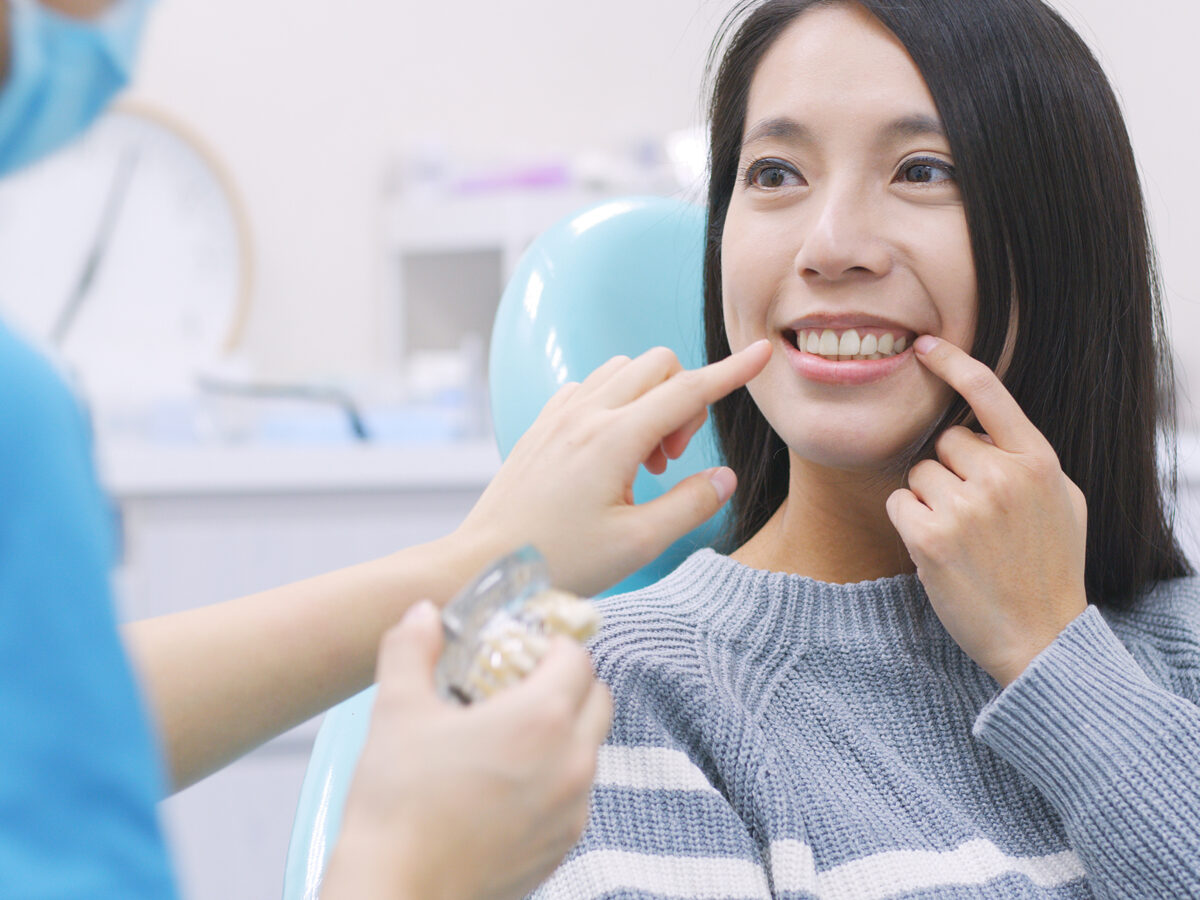Blog
Dental hygiene tips for healthy teeth & gums

How do you care for dental crowns?
Dental crowns or caps are placed over it to improve the strength, functionality, and appearance of a damaged tooth. Various materials are used to make them, including porcelain and metal.
Tooth caps are a popular dentistry treatment that can help restore teeth’ natural look and function. However, like any tooth restoration, crowns require proper care to ensure their longevity and effectiveness. In this article, we will discuss the best practices for caring for dental caps.
Whether you have one or several oral caps, following these seven simple tips can help ensure you keep them safe and enjoy your beautiful smile for years.
Some tips to take care of your dental crowns
- Brush and floss regularly
Maintaining good oral hygiene is essential for the longevity of your dental crowns. Brushing your teeth twice a day and flossing at least once daily to prevent plaque buildup and cavities is vital. When brushing, make sure to use a soft-bristled toothbrush and fluoride toothpaste. Avoid using abrasive toothpaste or toothbrushes, as they can cause damage to the crown’s surface or wear down the natural teeth surrounding the crown.
- Avoid hard or sticky foods
While dental crowns are durable, they are not indestructible. If you chew on hard foods such as ice, nuts, or hard candy, your crown may crack or chip. Sticky foods such as chewing gum, taffy, or caramel can damage the crown by pulling it out of place. If you must eat hard or sticky foods, try to chew on the opposite side of your mouth to avoid putting pressure on the crown.
- Wear a mouthguard
Dental crowns can be protected from damage if you wear a mouthguard during contact sports or grind your teeth at night. In order to prevent cracking or chipping of the crown, mouthguards are helpful in absorbing the impact force. Store-bought mouthguards are less comfortable than custom-made mouthguards from your dentist. So when you visit your dentist next, don’t forget to ask for one!
- Avoid using your teeth as tools
It is possible to damage the crown or your natural teeth when you open packages, bottles, or other objects with your teeth. Open packets and cut things with scissors or other tools rather than using your teeth.
- Visit your dentist regularly
To ensure the longevity of your dental caps, it is imperative to have regular oral health check-ups and cleanings. During your appointment, your dentist will examine your crowns for any signs of damage or wear and provide care recommendations. They will also clean your teeth and remove any plaque or tartar buildup, which can cause decay around the crown or natural teeth.
- Use fluoride mouthwash
Fluoride mouthwash protects natural teeth and dental crowns from decay and strengthens enamel. Once you have brushed and flossed your teeth, rinse your mouth with a fluoride mouthwash for better results.
- Avoid smoking
Smoking can cause discoloration of dental crowns and increase the risk of gum disease, leading to the loss of the crown. Quitting smoking or avoiding tobacco products can improve your crown’s longevity and overall oral health.
To ensure the long-term effectiveness and durability of dental crowns, taking proper care of them is essential. Brush and floss regularly, avoid hard or sticky foods, wear a mouthguard, avoid using your teeth as tools, visit your dentist regularly, use fluoride mouthwash, and avoid smoking.
In case you have any questions or concerns about caring for your dental caps, it is best to consult your dentist for recommendations. When you take proper care of oral caps, your smile can be beautiful, functional, and healthy for many years.
